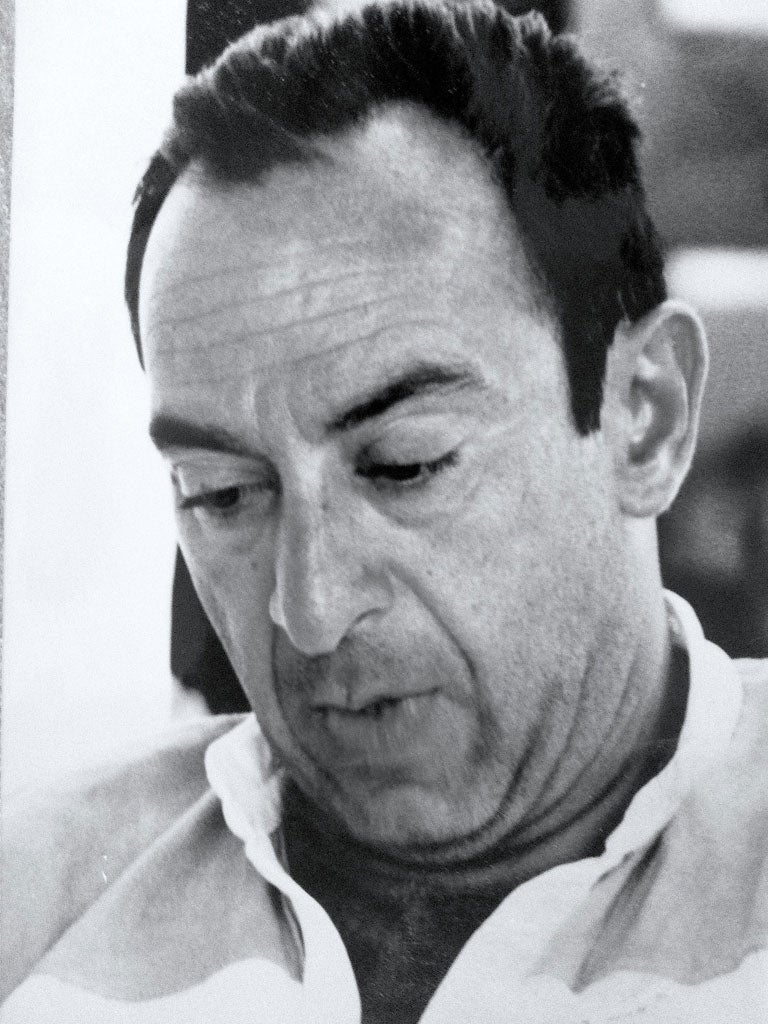Foulath Hadid: Writer and expert on Arab affairs

Long before the Arab Spring, Foulath Hadid believed people across the Arab world aspired to political freedom – and one day would achieve it. He condemned European imperialism, American hegemony, and autocratic Arab governments equally in denying the Arab people their legitimate aspirations. It was Hadid's good fortune to live long enough to see average men and women across the region rise up and challenge dictators, vindicating his long-held convictions.
For Hadid, Arab democracy was an inheritance. Born in Baghdad in 1937 to Muhammad Hadid and Wajiha Sabunji, Foulath grew up surrounded by the founding members of the Iraqi National Democratic Party – of which his father was one of the most prominent. Muhammad rose through the ranks of the finance ministry, was elected deputy for Mosul and held several cabinet portfolios under the monarchy, and the republic that followed the 1958 Revolution in Iraq. The young Hadid was greatly influenced by his father's political life and ideals.
Between 1947 and 1956 he went to school at Victoria College in Alexandria, Egypt, the "Eton of the Middle East". Hadid's schoolfriends stood by him for life. He went to Cambridge with one of his closest friends, Ghassan Shaker, where he read Law at Christ's College. He later studied business at Harvard, though he viewed his qualification as a Fellow of the Institute of Chartered Accountants as the most rigorous he encountered. During a successful career he opened Arthur Young's office in Beirut and rose to become Partner in Peat, Marwick and Mitchell.
Hadid's career crossed continents. While working in Washington, DC, he met his future wife Lalla Kenza Alaoui, a member of the Moroccan royal family, who was then attached to the Moroccan embassy. Through their marriage, Morocco came to be a second home to Hadid. The glamorous couple, who divided their lives between Europe, North America and the Middle East, mixed close friends, royalty and celebrities in their homes.
An avid sportsman, Hadid was a highly competitive golfer and was frequently spotted in the Royal Box at Wimbledon. His life was infused with culture and the arts, much of it shaped by his talented family. He took tremendous pride in the remarkable accomplishments of his sister Zaha Hadid, the Pritzker Prize-winning architect, and in the work of his daughter Tala Hadid, an Academy Award-winning independent film-maker.
Following his retirement, Hadid was introduced to St Antony's College by his old friend Patrick Seale in 2000. He was elected to a Senior Associate Membership to edit and publish the memoirs of his late father, Muhammad Hadid. The book, Mudhakkarati [My Memoirs] was published in London in 2006 and was instantly recognised as one of the most important Arab political memoirs of recent years.
Foulath Hadid turned next to the story of Iraq's democracy movement in the 1940s and 1950s. He was accepted to read for the DPhil at Oxford, but ultimately completed the project as a book, Iraq's Democratic Moment, to be published in London this autumn. With the publication of his book – Hadid received his author's advance copy while in hospital – he had the satisfaction of seeing a key aspect of his life's work brought to fruition.
In his 12 years at St Antony's, Hadid provided advice and support to both the College and its Middle East Centre in collaboration with two Wardens, Sir Marrack Goulding and Professor Margaret MacMillan. He raised funds to establish an annual award to support doctoral students in Middle Eastern studies, the Hadid Scholarship. Through his ties to the Moroccan British Society he played a decisive role in securing a major benefaction to endow a new post in Moroccan and Mediterranean studies based in St Antony's Middle East Centre.
He introduced his sister Zaha to the College, and she designed a major new building for the Middle East Centre. And he assisted Warden MacMillan in securing the benefaction that enabled the College to proceed with a transformative building complex, which nears completion. For his outstanding services to the College, Hadid was elected to an Honorary Fellowship in 2004, and the Hadid Room, the College's meeting room, was named in his honour. He is survived by his wife, his daughter Tala, his son Nik Williams, his elder brother Haytham Hadid and his sister Zaha.
Eugene Rogan
Foulath Hadid, author and accountant: born 7 March 1937; married Lalla Kenza Alaoui (one daughter); one son; died London 29 September 2012.
Join our commenting forum
Join thought-provoking conversations, follow other Independent readers and see their replies
Comments
Bookmark popover
Removed from bookmarks